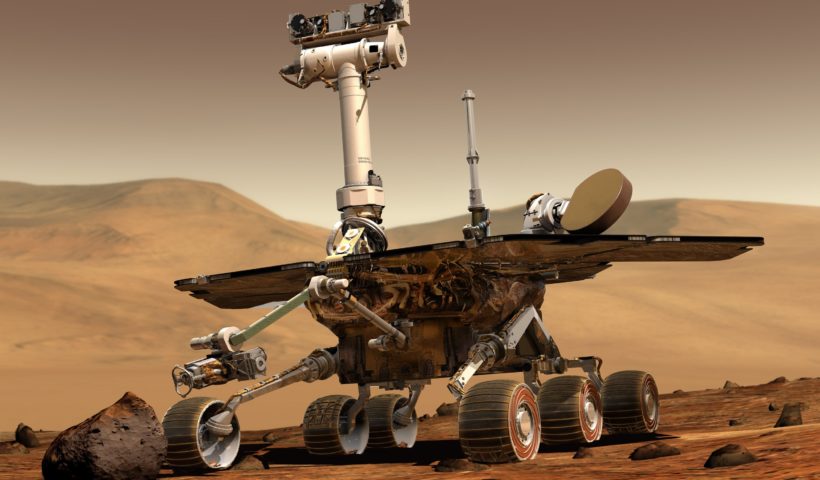Embryonic stem cells have immense medical potential. While both their acquisition for and use in research are fraught with controversy, arguments against their usage are rebutted by showing that embryonic stem cells are not equivalent to human lives. It is then argued that not using human embryos is unethical. Finally, an alternative to embryonic stem cells is presented.
View More Stem Cells: A Case for the Use of Human Embryos in Scientific ResearchCategory: Spring 2020
Not My Space Administration
Microbial and mechanical contamination of other planets is an ethical risk versus reward battle that the National Aeronautics and Space Administration (NASA) grapples with each mission. Humankind strives to explore and discover, but potentially at the expense of ecosystems apart from our own. Humanity must evaluate the consequences of planetary contamination, as we are the only known species with access to the external universe. There is an imminent responsibility to preserve and protect outer worlds and be noble in our quest in conquering the final frontier.
View More Not My Space AdministrationLimits to Social Media Engagement: An Ethical Approach
User engagement levels of social media platforms have seen a steady increase over the past decade. Software engineering practices are responsible for drawing users in and retaining their attention for extended periods of time through the use of extensive user profiling algorithms. These practices have created detrimental consequences for consumers. This article explores the ethicality behind such practices by analyzing software engineering applications.
View More Limits to Social Media Engagement: An Ethical ApproachKilling on Instinct: A Defense of Autonomous Weapon Systems for Offensive Combat
Autonomous weapon systems (AWS) are machines that can undertake lethal action in a combat scenario without the direct input of a human controller. This paper justifies the use of AWS under a rule utilitarian lens. Such weapons are more effective than human-operated systems, reduce collateral damage, and are superior at abiding by international law. Common counter arguments against AWS are also presented and refuted.
View More Killing on Instinct: A Defense of Autonomous Weapon Systems for Offensive CombatFood Engineering and Industry Influence on Nutrition
The food industry, in its unceasing quest for profits, has been insidiously undermining public health. Not only are they engineering foods to be more addictive, they are also actively influencing both public policy and research by funding groups and projects that pander to their desired corporate image. To combat the food industry’s deceptive practices, I recommend a government intervention that institutes industry-wide standards that benefit public health with changes based on the recommendations of conflict-free research and unbiased advocacy groups.
View More Food Engineering and Industry Influence on NutritionAnti-Vax Amidst Global Pandemic
4/27/2020 Over the past few years, the anti-vaccination, or anti-vax, movement has gained incredible traction throughout the US. So much so that measles, a disease…
View More Anti-Vax Amidst Global PandemicReopening the Country: When, How, and What’s the Cost?
4/20/2020 It’s the question on everyone’s mind: when will things get back to normal? Unfortunately, the answer isn’t as straightforward as one might hope, and…
View More Reopening the Country: When, How, and What’s the Cost?Catching Up as the World Moves Online
4/7/2020 The current COVID-19 pandemic has been devastating for many companies across the globe, but one app has seen its business explode: video conferencing platform…
View More Catching Up as the World Moves OnlineLung Savers or Lung Destroyers?
4/6/2020 Since the beginning of the new year, the world has been hit by a devastating pandemic. Many countries, states, and cities have introduced measures…
View More Lung Savers or Lung Destroyers?Moonshots: Unrealized Promise and Waning Public Interest
3/9/2020 In July 1969, Neil Armstrong became the first man to walk on the moon. A truly magnificent engineering feat, the moon landing sparked wonder…
View More Moonshots: Unrealized Promise and Waning Public Interest









